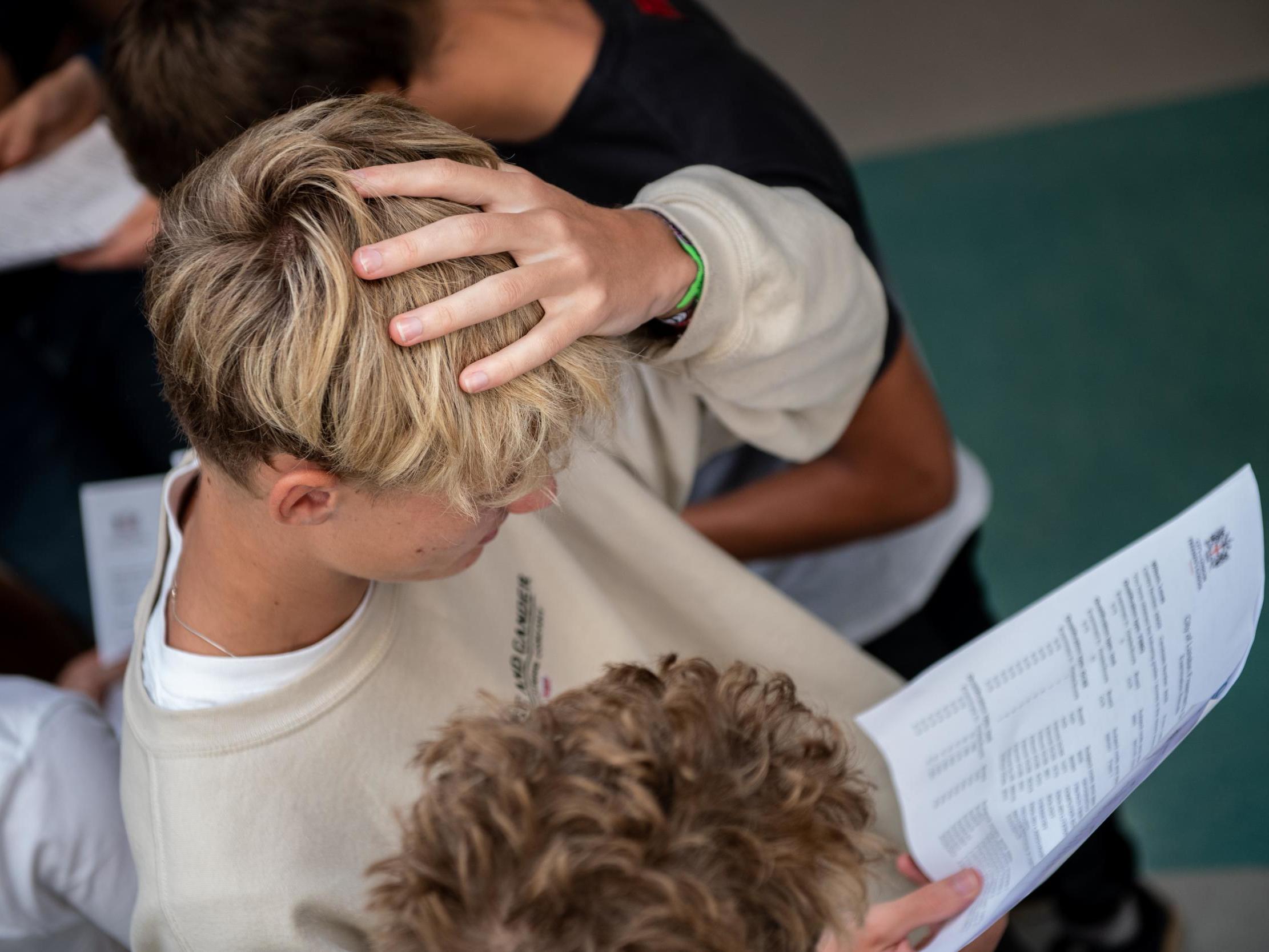Teachers ‘desperately worried’ about GCSE results as researchers warn 2m could be downgraded
Pupils at schools with historically better results will reap rewards of apprenticeships and higher education spots, analysts warn

Headteachers have expressed concern that an even larger proportion of GCSE results could be downgraded than A-levels, as analysts predicted some 2 million results would be forced down by the government’s algorithm.
Nearly 40 per cent of A-level grades received on Thursday were lower than those predicted by teachers, after a system of moderation by Ofqual replaced exams cancelled due to the coronavirus pandemic.
School leaders have voiced fears that GCSE students could face similar or even harsher reductions when those in England, Wales and Northern Ireland receive their results on Thursday.
“I’m desperately worried,” said Keziah Featherstone, head of Q3 Academy Tipton in the West Midlands.
“I can’t tell you how hard those kids worked, how hard the staff worked and I feel it is just going to be ‘your historical outcomes have been poor, you are going to be just absolutely slashed’ and that’s how I feel our community is going to be treated.”
“I feel exhausted. I’m done in and it’s beyond unfair,” Ms Featherstone added.
“These kids have got apprenticeships lined up, they’ve got college courses lined up and they’re not going to get on to them, and other kids at other schools that have got historically better results – but were actually going to get lower grades than them – will take their places instead and that’s the reality.”
Gill Pooley, head of Sydenham School in south London, added: “I’m not anticipating anything good at all.”
Analysts at FFT Education Datalab warned they expected 35 to 40 per cent of GCSE results to be downgraded.
While a larger proportion of pupils from disadvantaged backgrounds sit GCSEs than A-levels, the researchers told The Guardian that teachers’s assessments for disadvantaged students GCSE results are likely to be the most over-optimistic.
Defending its moderation system, the exams regulator said a “few centres put in implausibly high judgments” – including one which they said submitted all A*/A grades for students in two subjects where previously there had been normal distribution.
Ofqual said the example illustrated the importance of moderating school assessment grades in order to remove unfairness for students.
But their defence was criticised by headteachers and school leaders’s unions as insulting to the efforts of teachers who were tasked with submitting the grades they thought each student would have achieved.

“It is absurd. It’s treating us like idiots. We are professionals,” said Ms Featherstone.
“I don’t know any school that didn’t go through an incredibly rigorous process to come up with their centre-assessment grades. I am embarrassed that they have come up with that as a statement.”
NAHT general secretary Paul Whiteman added: “School leaders and their teams have behaved with integrity and professionalism. We need to trust them.
“They were tasked with clear guidance to submit centre-assessed grades and they took that process incredibly seriously, taking time to consider all of the available evidence.
“What evidence does Ofqual have that these schools had not significantly changed from their historic data? That they might not now successfully appeal?”
In an eleventh-hour intervention, education secretary Gavin Williamson on Wednesday unveiled a “triple lock” system allowing pupils to appeal to use their mock exam results instead of their awarded grades, or to resit in autumn.
But there has not yet been clarification on how these appeals to Ofqual will work in practice, with concerns raised over the fact that the way mock exams are carried out vary significantly between schools.
“We are left angry. We are left disappointed,” added Ms Featherstone. ”We are left knowing that students still don’t know what a valid mock is. We still don’t know how we can appeal until next week.
“So my lingering feeling is disappointment and I’ll be honest the way it has been handled – the pit of my stomach for next week is even worse.”
Additional reporting by PA
Join our commenting forum
Join thought-provoking conversations, follow other Independent readers and see their replies
Comments
Bookmark popover
Removed from bookmarks